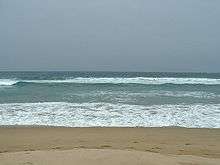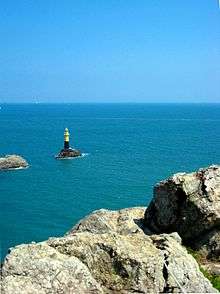Definify.com
Webster 1913 Edition
Mare
Mare
Mare
,Webster 1828 Edition
Mare
MARE
,Definition 2026
Mare
Mare
mare
mare
English
Pronunciation
Noun
mare (plural mares)
- An adult female horse.
- 1879, Richard Jefferies, The Amateur Poacher, chapter1:
- But then I had the [massive] flintlock by me for protection. ¶ […] The linen-press and a chest on the top of it formed, however, a very good gun-carriage; and, thus mounted, aim could be taken out of the window at the old mare feeding in the meadow below by the brook, and a 'bead' could be drawn upon Molly, the dairymaid, kissing the fogger behind the hedge, […].
- 1879, Richard Jefferies, The Amateur Poacher, chapter1:
- (Britain, pejorative, slang) A foolish woman.
- 2007, Hester Browne, Little Lady, Big Apple
- The silly mare phoned your mother, talking about applying for a mortgage, and we don't want that, do we?
- 2007, Hester Browne, Little Lady, Big Apple
Antonyms
Coordinate terms
- (adult female horse): foal and filly refer to younger horses, pony can refer to adult horses of either gender under a certain height.
Translations
|
|
Etymology 2
From Old English mare, from Old English mare (“nightmare, monster”), from Proto-Germanic *marǭ (“nightmare, incubus”) (compare Dutch (dial.) mare, German (dial.) Mahr, Old Norse mara ( > Danish mare, Swedish mara (“incubus, nightmare”)), from Proto-Indo-European *mor- (“feminine evil spirit”). Akin to Old Irish Morrígan (“phantom queen”), Albanian merë (“horror”), Polish zmora (“nightmare”), Czech mura (“nightmare, moth”), Greek Μόρα (Móra).
Pronunciation
Noun
mare (plural mares)
- (obsolete outside dialects) A type of evil spirit thought to sit on the chest of a sleeping person; also the feeling of suffocation felt during sleep; a nightmare.
- (Britain, colloquial) (short for nightmare) A nightmare; a frustrating or terrible experience.
- I'm having a complete mare today.
Derived terms
Translations
|
Etymology 3
Pronunciation
- IPA(key): /ˈmɑːreɪ/, /ˈmeːri/, /ˈmɑːri/
Noun
mare (plural maria)
- (planetology) A dark, large circular plain; a “sea”.
- (planetology) On Saturn's moon Titan, a large expanse of what is thought to be liquid hydrocarbons.
Translations
Anagrams
Albanian
Alternative forms
- marë, marulë
Etymology
Plurale tantum; plural of variant marë, from Latin marum (“cat thyme, kind of sage”).
Noun
mare f (definite singular marja)
- strawberry tree (Arbutus unedo)
- strawberry tree fruit
Derived terms
- mareshtë
Catalan
Etymology
From Old Provençal [Term?], from Latin māter, mātrem, from Proto-Italic *mātēr, from Proto-Indo-European *méh₂tēr.
Pronunciation
- (Balearic) IPA(key): /ˈma.ɾə/
- (Central) IPA(key): /ˈma.ɾə/
- (Valencian) IPA(key): /ˈma.ɾe/
- Rhymes: -aɾe
Noun
mare f (plural mares)
Danish
Etymology
Noun
mare c (singular definite maren, plural indefinite marer)
Related terms
- mareridt n
Declension
References
- “mare” in Den Danske Ordbog
Dutch
Pronunciation
Etymology 1
From Middle Dutch mare (“incubus”), from Old Dutch *mara, from Proto-Germanic *marǭ.
Cognate with German Mär.
Noun
mare f (plural maren, diminutive maartje n)
Synonyms
Related terms
Verb
mare
- (archaic) singular present subjunctive of maren
Etymology 2
Noun
mare f (plural maren, diminutive maartje n)
- depression in non-volcanic stone, compare maar
Etymology 3
Related to nachtmerrie (“nightmare”), a compound in which the latter component (merrie (“female horse”)) is a corruption of mare. Analogously related to the latter components in English nightmare and French cauchemar.
Noun
mare f (plural mares, diminutive maartje n)
Related terms
- nachtmare, nachtmerrie
Anagrams
French
Etymology
From Middle French mare, from Old French mare, from Old Norse marr (“lake, sea, pool”), from Proto-Germanic *mari (“lake, sea”), from Proto-Indo-European *mari-, *mori- (“marsh, lake, sea”). Akin to Old High German meri ("lake, sea"; > German Meer), Old Saxon meri, Old English mere ("pond, pool, mere"; > English mere). More at mere.
Pronunciation
- IPA(key): /mɑʁ/
Noun
mare f (plural mares)
Anagrams
Istriot
Etymology 1
Noun
mare
- sea
- 1877, Antonio Ive, Canti popolari istriani: raccolti a Rovigno, volume 5, Ermanno Loescher, page 99:
- Cume li va puleîto in alto mare!
- How they row well on the high seas!
- Cume li va puleîto in alto mare!
- 1877, Antonio Ive, Canti popolari istriani: raccolti a Rovigno, volume 5, Ermanno Loescher, page 99:
Derived terms
Etymology 2
Noun
mare f
See also
Italian


Etymology
From Latin mare, from Proto-Italic *mari, from Proto-Indo-European *móri.
Pronunciation
- IPA(key): /ˈmaːre/, [ˈmäːre]
- Rhymes: -are
Noun
mare m (plural mari)
Related terms
See also
- oceano (“ocean”)
Anagrams
Latin
Etymology
From Proto-Italic *mari, from Proto-Indo-European *móri.
Pronunciation
- (Classical) IPA(key): /ˈma.re/, [ˈma.rɛ]
Noun
mare n (genitive maris); third declension
- sea
- National motto of Canada:
- a mari usque ad mare ― from sea to sea
- National motto of Canada:
Inflection
Third declension neuter “pure” i-stem.
| Case | Singular | Plural |
|---|---|---|
| nominative | mare | maria |
| genitive | maris | marium |
| dative | marī | maribus |
| accusative | mare | maria |
| ablative | marī | maribus |
| vocative | mare | maria |
Synonyms
Derived terms
- Hibēricum Mare
- Mare Balticum
- Mare Germanicum
- marīnus
- maritimus
Descendants
|
|
Noun
mare m
- ablative singular of mas
References
- mare in Charlton T. Lewis and Charles Short (1879) A Latin Dictionary, Oxford: Clarendon Press
- mare in Charlton T. Lewis (1891) An Elementary Latin Dictionary, New York: Harper & Brothers
- Meissner, Carl; Auden, Henry William (1894) Latin Phrase-Book, London: Macmillan and Co.
-
(ambiguous) there is a storm at sea: mare ventorum vi agitatur et turbatur
-
(ambiguous) the Mediterranean Sea: mare medium or internum
-
(ambiguous) the town lies near the sea: oppidum mari adiacet
-
(ambiguous) a promontory juts out into the sea: promunturium in mare procurrit
-
(ambiguous) a peninsula projects into the sea: paeninsula in mare excurrit, procurrit
-
(ambiguous) there is a storm at sea: mare ventorum vi agitatur et turbatur
Marau
Noun
mare
References
- The Linguistic Situation in the Islands of Yapen, Kurudu, Nau and Miosnum, New Guinea (1961)
Munggui
Noun
mare
References
- The Linguistic Situation in the Islands of Yapen, Kurudu, Nau and Miosnum, New Guinea (1961)
Old English
Etymology
From Proto-Germanic *marǭ.
Noun
mare f (nominative plural maran)
- nightmare, evil spirit
Declension
Descendants
- English: mare
Old French
Alternative forms
Adjective
mare m (oblique and nominative feminine singular mare)
Adverb
mare
Papuma
Noun
mare
References
- The Linguistic Situation in the Islands of Yapen, Kurudu, Nau and Miosnum, New Guinea (1961)
Romanian
Pronunciation
- IPA(key): /ˈma.re/
- Rhymes: -are
Etymology 1
From Latin mārem, accusative singular of mās (“male”), from Proto-Indo-European *meryo (“young man”)
Adjective
mare m, f, n (plural mari)
Inflection
Antonyms
Derived terms
Related terms
Etymology 2
From Latin mare, from Proto-Italic *mari, from Proto-Indo-European *móri.
Noun
mare f (plural mări)
- sea
- Când am mers la mare, am înotat un pic și mai târziu am prins un pește mare.
- When I went to sea, I swam a little and later caught a big fish.
- Când am mers la mare, am înotat un pic și mai târziu am prins un pește mare.
Declension
Related terms
Venetian
Etymology
From Latin māter, mātrem. Compare Italian madre
Noun
mare f (invariable)